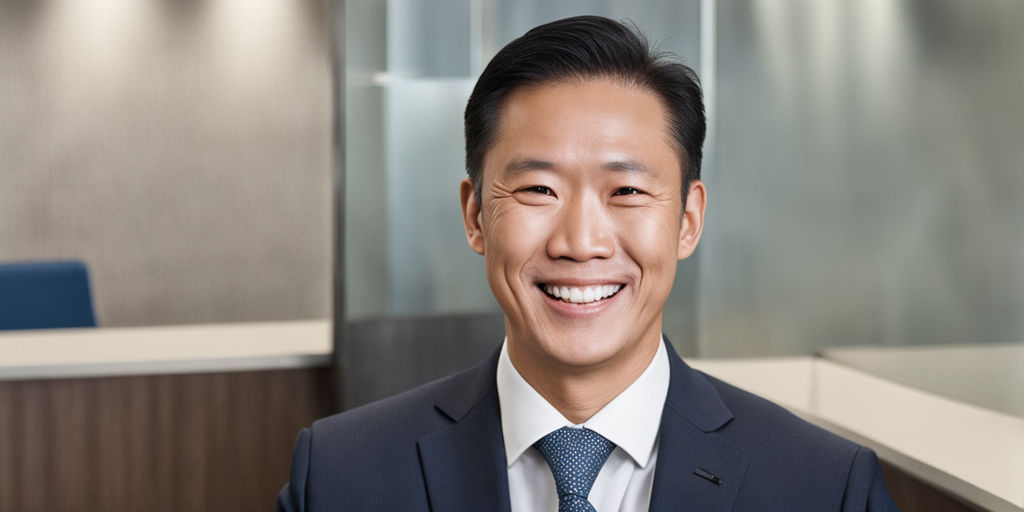
If you’re a foreigner looking to buy property in Singapore, you may be wondering if you’re eligible for a mortgage. The good news is that it is possible for foreigners to obtain a mortgage in Singapore, but there are some restrictions and additional requirements that you should be aware of.
To be eligible for a mortgage in Singapore as a foreigner, you must meet certain criteria, including having a valid work permit or employment pass, and being able to provide proof of income and employment. Additionally, foreign buyers are only permitted to purchase certain types of properties, such as non-landed private properties, and are subject to additional stamp duties and fees.
Navigating the process of obtaining a mortgage in Singapore can be complex, especially for foreigners who may not be familiar with the legal and regulatory framework. However, with the right information and guidance, it is possible to successfully secure a mortgage and purchase property in Singapore as a foreigner.
Key Takeaways
- Foreigners can obtain a mortgage in Singapore, but there are restrictions and additional requirements.
- Eligibility criteria include having a valid work permit or employment pass, and being able to provide proof of income and employment.
- Foreign buyers are only permitted to purchase certain types of properties and are subject to additional stamp duties and fees.
Eligibility Criteria for Foreigners

If you are a foreigner looking to buy a property in Singapore, you may be wondering if you are eligible for a mortgage. The answer is yes, but there are certain criteria you need to meet. In this section, we will discuss the eligibility criteria for foreigners.
Types of Eligible Properties
Foreigners can buy both freehold and leasehold properties in Singapore, but cannot buy landed properties (unless in Sentosa Cove, or special permission is granted). As a foreigner, you are also subject to an additional stamp duty of 20% for residential properties. However, you can avoid this additional stamp duty if you are a Permanent Resident (PR) or if you are buying an Executive Condominium (EC).
Permanent Resident and Non-Resident Differences
As a Permanent Resident (PR), you can enjoy the same privileges as a Singaporean citizen when it comes to buying a property in Singapore. This means that you do not have to pay the additional stamp duty of 20% for residential properties. However, if you are a non-resident, you will need to pay this additional stamp duty.
Understanding the Option to Purchase (OTP) Process
When you find a property that you want to buy, you will need to sign an Option to Purchase (OTP) with the seller. This is a legal document that gives you the exclusive right to buy the property within a specified period of time (usually 14 days). To exercise this option, you will need to pay a deposit (usually 1% of the purchase price). Once you have exercised the option, you will need to pay the remaining purchase price within 8 to 10 weeks.
To be eligible for a mortgage, you will need to provide proof of income and a valid work visa. Your credit history will also play a big role in getting a mortgage loan approved. As a foreigner, you may need to provide additional documentation such as your passport and proof of funds. It is important to work with a reputable mortgage broker or bank to help you navigate the process and ensure that you meet all the eligibility criteria.
In summary, as a foreigner in Singapore, you can get a mortgage to buy a property, but you need to meet certain eligibility criteria. You can buy both freehold and leasehold properties, but cannot buy landed properties (unless in Sentosa Cove, or special permission is granted). If you are a Permanent Resident (PR), you can avoid paying the additional stamp duty of 20% for residential properties. To exercise the option to purchase, you will need to sign an OTP with the seller and pay a deposit.
Financial Considerations

When applying for a mortgage in Singapore as a foreigner, there are several financial considerations to keep in mind. Here are some of the key factors to consider:
Income and Employment Verification
To qualify for a mortgage in Singapore, you will need to provide proof of your income and employment status. This typically involves providing bank statements and payslips to the bank or lender. If you are self-employed, you may need to provide additional documentation to prove your income.
Total Debt Servicing Ratio (TDSR) Explained
The Total Debt Servicing Ratio (TDSR) is a measure of your ability to repay your debts. It takes into account all of your existing debt obligations, including credit card debt, car loans, and other loans. The TDSR limit is currently set at 60% of your gross monthly income.
Loan-to-Value (LTV) Ratio
The Loan-to-Value (LTV) ratio is the amount of your mortgage loan compared to the market value of the property you are purchasing. The LTV ratio is typically capped at 75% for foreigners, which means you will need to make a down payment of at least 25%.
Interest Rates and Loan Types
When applying for a mortgage in Singapore, you will need to choose between a fixed rate or variable rate mortgage. Fixed rate mortgages offer a stable interest rate over the entire tenure of the loan, while variable rate mortgages may fluctuate over time. The interest rate you are offered will depend on a number of factors, including your credit history and the current market conditions.
Additional Costs and Fees
In addition to the mortgage loan itself, there are a number of additional costs and fees to consider when purchasing a property in Singapore. These may include stamp duty, valuation fees, agent fees, and legal fees. Foreigners are also subject to Additional Buyer’s Stamp Duty (ABSD), which is an additional tax of up to 20% of the property’s purchase price.
Overall, obtaining a mortgage in Singapore as a foreigner can be a complex process. However, by understanding the financial considerations involved and working with a reputable lender or bank, you can secure financing for your dream property.
Legal and Regulatory Framework

If you are a foreigner looking to purchase a property in Singapore, it is important to understand the legal and regulatory framework. This section will provide you with an overview of the legal requirements and regulations you need to know about.
Conveyancing and Legal Representation
When purchasing a property in Singapore, it is recommended that you engage a conveyancing lawyer to represent you. A conveyancing lawyer will help you with the legal documentation and ensure that the transaction is completed smoothly. It is important to choose a lawyer who is experienced in property transactions in Singapore.
Singapore Land Authority Regulations
The Singapore Land Authority (SLA) is the government agency responsible for managing land and property in Singapore. As a foreigner, you will need to seek approval from the SLA before purchasing any property in Singapore. The SLA has certain regulations in place to ensure that the property market in Singapore remains stable. These regulations include restrictions on the type of properties that foreigners can purchase.
Stamp Duties and Taxes
When purchasing a property in Singapore, you will need to pay stamp duties and taxes. As a foreigner, you will be subject to an additional stamp duty of 15% for a residential property, even for a first-time purchase. However, if you are a Singapore Permanent Resident (PR), you will be exempted from this additional stamp duty.
In addition, it is important to note that Singapore has free trade agreements with several countries. If you are a citizen or permanent resident of one of these countries, you may be eligible for certain tax benefits when purchasing a property in Singapore. It is recommended that you consult with a tax professional to understand your tax obligations and benefits.
Overall, purchasing a property in Singapore as a foreigner can be a complex process. It is important to understand the legal requirements and regulations before making any decisions. By engaging a conveyancing lawyer and seeking advice from tax professionals, you can ensure that your transaction is completed smoothly and in compliance with all regulations.
Banking and Financing Options

As a foreigner looking to buy a property in Singapore, you will need to secure a mortgage loan from a bank. With so many banking and financing options available, it can be overwhelming to choose the right one. In this section, we’ll explore some factors to consider when selecting a bank, the In-Principle Approval (IPA) process, and the different mortgage loan packages available.
Choosing the Right Bank
When choosing a bank for your mortgage loan, consider factors such as interest rates, loan tenure, and loan-to-value (LTV) ratio. Some of the popular banks in Singapore that offer home loans to foreigners include OCBC, UOB, DBS, Standard Chartered, Maybank, Citibank, CIMB, Bank of China, and HSBC.
It’s important to do your research and compare the different mortgage packages offered by each bank. Look out for any promotions or discounts that may be available, such as cash rebates or fee waivers. Don’t be afraid to negotiate with your banker to get the best deal possible.
Understanding In-Principle Approval (IPA)
Before you start shopping for a property, it’s essential to obtain an In-Principle Approval (IPA) from your bank. An IPA is a formal confirmation of the maximum amount of money a bank is willing to loan you based on your financial situation and creditworthiness.
To get an IPA, you’ll need to submit documents such as your passport, employment pass, income tax statements, and bank statements. The IPA is usually valid for three to six months, giving you time to search for a property within your budget.
Mortgage Loan Packages
Once you’ve obtained your IPA, it’s time to start looking at the different mortgage loan packages available. Most banks in Singapore offer both fixed and floating interest rate packages. Fixed-rate packages offer a stable interest rate for a set period, while floating-rate packages may fluctuate based on market conditions.
Some banks also offer special packages for foreigners, such as higher LTV ratios or longer loan tenures. Be sure to read the terms and conditions carefully and understand any fees or penalties that may apply.
In summary, choosing the right bank, obtaining an IPA, and selecting the right mortgage loan package are crucial steps in securing a mortgage loan as a foreigner in Singapore. With the right research and preparation, you can find a mortgage package that suits your needs and helps you achieve your dream of owning a property in Singapore.
Property Acquisition Process

If you are a foreigner looking to acquire property in Singapore, it is important to understand the property acquisition process. This process involves several steps, including searching for suitable properties, signing the Sales and Purchase Agreement (SPA), and finalising the mortgage. In this section, we will take a closer look at each of these steps.
Searching for Suitable Properties
The first step in the property acquisition process is to identify suitable properties. You can do this by browsing property websites, attending property exhibitions, and engaging the services of a property agent. When searching for properties, it is important to consider factors such as location, price, and amenities.
Sales and Purchase Agreement
Once you have identified a suitable property, the next step is to sign the Sales and Purchase Agreement (SPA). The SPA is a legally-binding agreement between the buyer and the seller. It outlines the terms and conditions of the sale, including the purchase price, payment schedule, and completion date.
Finalising the Mortgage
After signing the SPA, you will need to finalise the mortgage. This involves submitting a loan application to a bank or financial institution. The bank will require you to provide documentation such as your passport, employment pass, and income statements. It will also conduct a valuation report to determine the value of the property.
It is worth noting that Singapore has strict regulations regarding property ownership by foreigners. For example, foreigners are not allowed to purchase certain types of properties, such as HDB flats. Additionally, foreigners may be subject to additional taxes, such as the Additional Buyer’s Stamp Duty (ABSD) and Seller’s Stamp Duty (SSD).
Despite these restrictions, Singapore’s property market remains attractive to overseas buyers. With a wide range of freehold properties and a stable property market, Singapore offers a great investment opportunity for foreigners looking to invest in real estate in Asia.
Living in Singapore

If you’re a foreigner looking to buy a property in Singapore, it’s important to understand what it’s like to live in the country. Singapore is a vibrant and exciting place to live, with a rich culture and a high standard of living. Here are a few things to keep in mind:
Public vs Private Housing
In Singapore, there are two types of housing: public and private. Public housing, also known as HDB flats, are subsidized by the government and are more affordable than private housing. HDB flats are located in different areas of Singapore and come in different sizes and configurations. They are a popular choice for Singaporeans and foreigners alike, as they offer a range of amenities and are located in convenient areas.
Private housing, on the other hand, is more expensive and offers more luxurious amenities. Private properties include condominiums, landed properties, and apartments. These properties are located in prime areas of Singapore and offer a range of facilities such as swimming pools, gyms, and 24-hour security.
Understanding CPF Contributions
As a foreigner buying property in Singapore, it’s important to understand the Central Provident Fund (CPF) contributions. The CPF is a social security savings scheme that helps Singaporeans and Permanent Residents (PRs) save for their retirement, healthcare, and housing needs. As a foreigner, you may also contribute to the CPF if you are working in Singapore.
If you’re buying a HDB flat, you can use your CPF savings to pay for the downpayment and monthly instalments. However, there are limits to how much you can use. For example, if you’re buying a resale flat, you can only use your CPF savings to pay for up to 15% of the purchase price. If you’re buying a new flat, you can use your CPF savings to pay for up to 10% of the purchase price.
Overall, living in Singapore as a foreigner can be an exciting and rewarding experience. By understanding the different types of housing and the CPF contributions, you can make an informed decision about buying property in Singapore.
Frequently Asked Questions
What’s the scoop on foreigners snapping up condos in Singapore?
Singapore is a popular destination for foreign investors, and many of them are interested in buying condos. According to the law, foreigners can buy private residential properties such as condos, but they are not allowed to buy HDB flats. However, there are some restrictions on the purchase of condos by foreigners. For example, they must get approval from the Singapore Land Authority before buying a condo.
Is it a piece of cake for a foreigner to secure a home loan in Singapore?
Getting a home loan in Singapore as a foreigner is not as easy as it is for locals. Foreigners must provide additional documentation to prove their income and creditworthiness. Banks will typically require at least three months of payslips, bank statements, and other financial documents. Additionally, foreigners may be required to pay a higher down payment than locals, usually around 25% of the property’s value.
Could a non-local invest in a swanky freehold property in Singapore?
Yes, non-locals can invest in freehold properties in Singapore. However, they must adhere to certain restrictions. For example, non-locals are not allowed to buy landed property without approval from the government. Additionally, they are not allowed to purchase properties that are within 1 km of any military installation or sensitive government facility.
Are there any hurdles for expats wanting to buy a resale HDB flat?
Expats are not allowed to buy resale HDB flats in Singapore. HDB flats are subsidized by the government and are meant for Singaporean citizens and permanent residents. However, expats who are married to a Singaporean citizen or permanent resident may be eligible to purchase an HDB flat.
What’s the deal with property taxes for non-Singaporeans?
Non-Singaporeans who own property in Singapore are subject to property tax. The tax rate varies depending on the value of the property and the owner’s residency status. For non-residents, the tax rate is typically higher than for residents. Non-residents are also subject to additional taxes, such as the Additional Buyer’s Stamp Duty (ABSD), which is a tax on the purchase of residential property.
Fancy a UK mortgage while living in Singapore – is that doable?
Yes, it is possible to get a UK mortgage while living in Singapore. However, it may be more challenging than getting a mortgage in Singapore. UK lenders will typically require more documentation from overseas borrowers, such as proof of income and residency status. Additionally, UK lenders may require a higher down payment from overseas borrowers.

